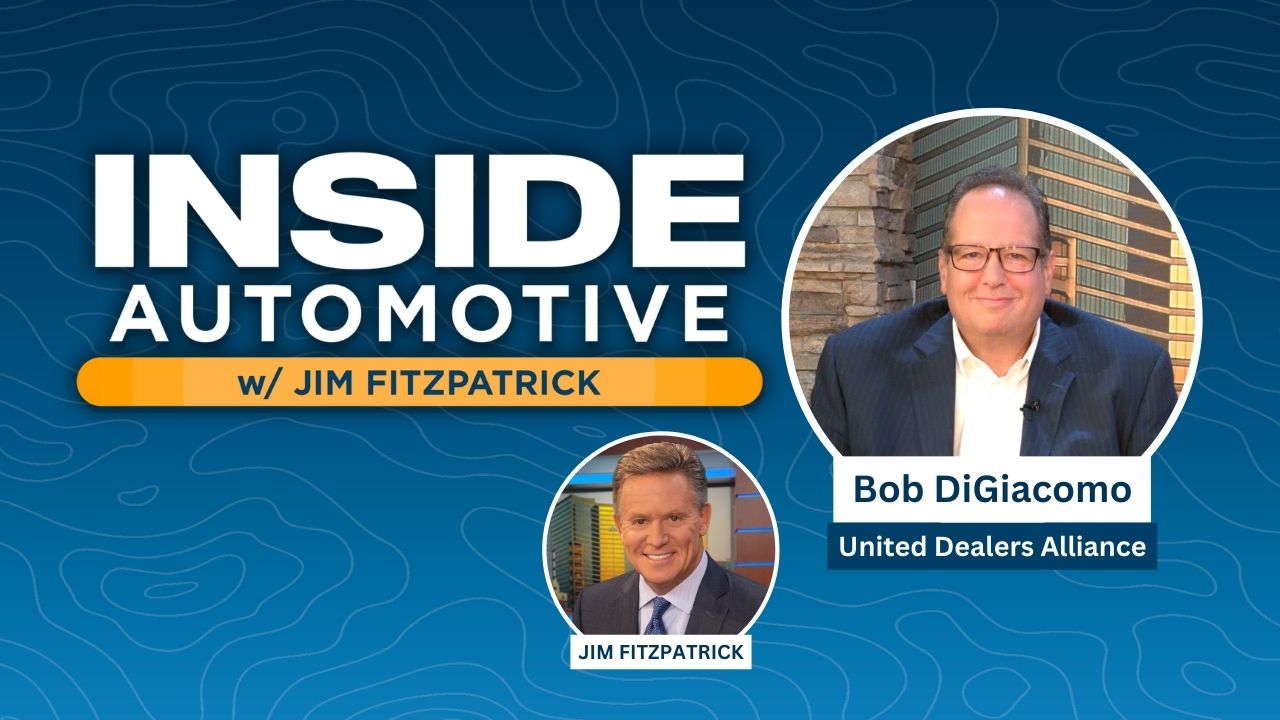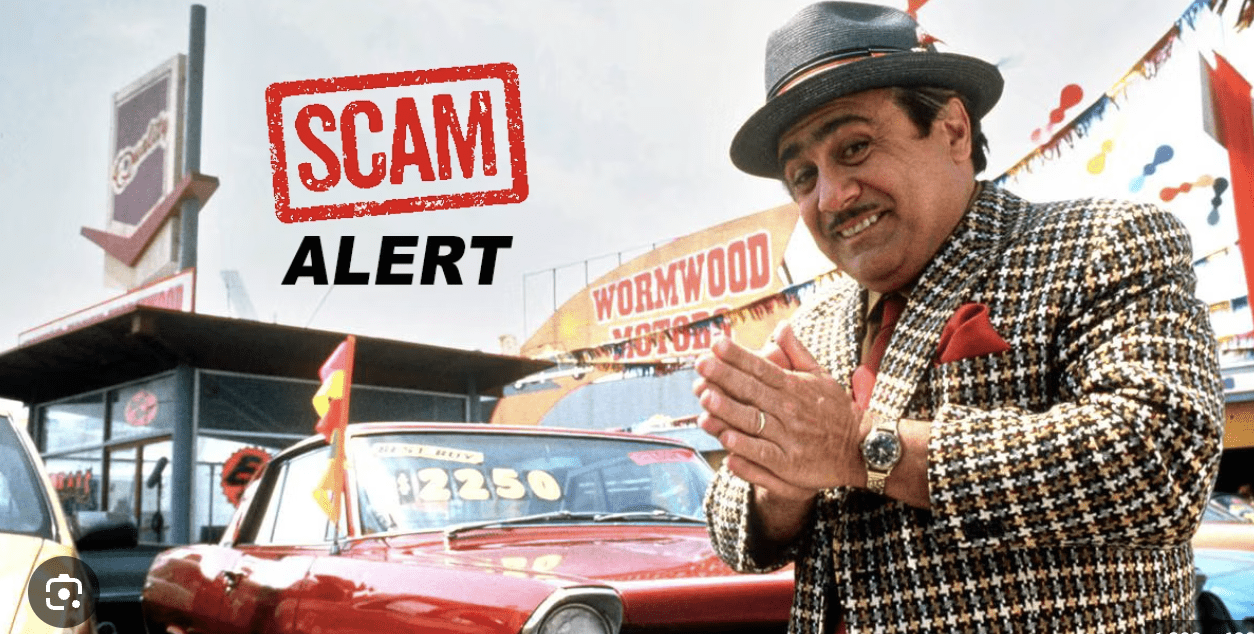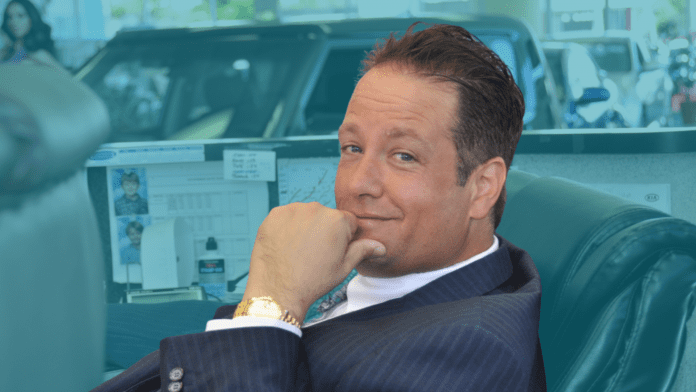Robert “Bob” DiGiacomo has been immersed in the retail side of the automotive industry for nearly 30 years. He has enjoyed a very successful career optimizing several finance departments in a very tough market in the Northeast.
Tough not only defined some of the characters who would arrive with big demands for vehicle purchases and loans (for which they often didn’t qualify), but also the geographical location where car dealers were often the headline stories on the 7 o’clock news (many times deserved). It was far too common for a dealer to be front and center on a “Shame on You” story by investigative news journalists making a career in exposing predatory and deceptive practices and telling prospective victims to “beware of the dogs!”


Bob DiGiacomo (BD): “Early on I made two career commitments: I would never end up in a battle with a ‘rough’ customer because of a deceptive conversation and I would never (ever) end up on the 7 o’clock news!”
Bob discovered early in his career as a finance manager that there could be a better way to communicate with customers. First perhaps motivated by fear of exposure, or from disgust in what others accepted as normal practice, he knew there could be a more sustainable, profitable, and cleaner deal transaction. The goal was to have an appreciative customer rather than an irate customer with their attorney, or worse, the Attorney General, on speed dial.
From there began a long successful career in auto finance for Bob and a great performing dealership which was owned by two very happy and newly wealthy dealers.
A lot has happened since the early 90s, but over time, Bob proved his then-obscure approach worked. It afforded him a great reputation as a producer who protected the house and made everyone lots of money. Too came a very special statistic: a perfect, never on T.V., and never tarnished record of zero customer complaints.
For the cynics reading this, of course this does not mean there were never customers who didn’t have an issue, or concern, with a transaction; that would be silly to assert and insulting to the reader. Periodical customer issues arise in any and all industries. Sometimes you’re wrong, sometimes the customer is wrong. Sometimes you try, with little success, to rectify and satisfy, but you can never satisfy everyone.
The statement made here was to make claim of never having a formal complaint or a single customer who could rightfully state “You told me different” or “You never told me” (those two being the most leveled customer complaint narratives). Instead, Bob enjoyed a career in an otherwise wild place and time, where rules were regularly pretzel bent. He was able to run a complaint-free, high-output, high-income, zero-deception finance department, leading to an elated employer and a continually satisfied customer base.
How?
To explain the details of “how” is not so simple, and certainly couldn’t fit an article this size, but you can read some broad-stroke explanations here. Today, Bob DiGiacomo is the newly named CEO and Operations lead at United Dealers Alliance (UDA), an income development, training, and finance product-providing company.
For nearly 10 years, Bob has been training his “Tell, Don’t Sell” technique to some of the best-performing and cleanest-run finance and sales departments throughout the United States.
 Watch now: How quality F&I vendors boost performance at all levels — Bob DiGiacomo | United Dealers Alliance
Watch now: How quality F&I vendors boost performance at all levels — Bob DiGiacomo | United Dealers Alliance
BD: “As a finance manager/director, you had a few job responsibilities. First, it was selling the customer on their deal. Second was selling the bank on why they should participate in the deal, then, selling the insurance company on why they shouldn’t ruin the deal. Finally, make as much money as you could for the dealership while protecting their operation and your job. Sometimes, this was easier said than done, hence a breeding ground for some of the smartest scammers in the industry. Smart because they had to put a ton of creative thought and execution to some of the countless, creative and mostly falsified, scam-ish tactics.”
Scams in the auto industry are no secret; they’re a stigma attached to many car salespeople, managers, and dealers. Sadly, the stigma is often well-deserved.
Conversely, Bob studied, learned, and practiced a discipline to stay in the framework of each product without one word of opinion or exaggeration. His explanation would be, “what is covered and what is not covered”, taking the words directly from the provision pages of each contract he offered. He adhered to black and white print: if it says it’s covered, it is, if it doesn’t say it’s covered, it’s not. Never would one of his customers have heard the words “bumper to bumper.”
A remarkable fact still in the industry today is that thousands of service contracts, and other vehicle protection policies, are still offered with misleading information. Customers are often sold on some true, but many false, reasons for why they should make a particular purchase…
Yes, in 2023, representatives within dealerships are still using half-truth selling methods to drive customer engagement. They side-step concerns, or worse, will never mention anything which doesn’t easily support their narrative.
The policy and process of Bob’s finance department was simple: any point of issue on any portion of a customer’s deal/contract (which may be a perceivable negative by the customer), would be brought forward on the outset instead of hidden with hopes it would not come up. From there, he forced himself to view every customer as wearing a hidden camera, ready to expose any wrongdoing to the media. With that imagination, Bob convinced himself to practice presentations which would never breech any line of deception, but instead make simple elaboration (disclosure) statements which aligned 100% with fact and truth.


BD: “I knew if there was ever a question or comment by any customer, or reporter, I could defend any statement I ever made as truthful and accurate.”
In so many cases, and for so many years, this simple commitment to the “Tell, Don’t Sell” presentation technique proved easy and effective.
BD: “As a trainer today, I’m amazed when I hear what’s still being said in dealerships.”
~95% of what is said/offered by a car salesperson, manager, or other party who comes in contact with a customer, may be true and accurate. Sadly, ~5% is conveniently falsified. This seemingly small percentage of deception can still be the ruination of a career or organization. Let’s not forget the poor customer who was scammed instead of given clear and transparent information so they could make a level-minded, informed decision on their own.
Throughout his retail years, and current day training of finance managers, sales personnel, and managers, Bob asserts:
“It’s much harder to lie than to just tell the truth. You have to keep track of so many angles, and stories, and so on. Why not concentrate on a fix? The addition or subtraction of just a few words can make a huge difference in almost all cases. Why not take the time and effort to correct speech patterns, word tracks, and presentations, to accentuate accurate information and omit anything considered stretching or just simply false?”
Bob’s best example is listening to countless salespeople or finance managers telling a customer: “You can refinance in 6 months”, when in fact they’re knowingly withholding a lot of supporting information which would make that statement true vs. false.
Simply replacing the word “can” with the phrase “may be able to” is the first step, but don’t stop there. Explain the issue, the likelihood of their success, and accentuate that 6 timely payments alone are not going to get them qualified. Explain that they will most likely need to save and have a down payment available to reduce the unpaid principle balance, and without additional money, they will likely not be able to refinance for a while, etc.
BD: “It’s ok, they already know it. It just takes a little ethical discipline, two extra minutes, and the grand total of 100 extra words. A customer can be truthfully explained what a possible refinance would look like, and how it may work.”


The old way, or the right way? The delivery results are almost always identical on the surface. 99 of 100 customers are still going to take the deal, as most customers have an amazing talent of self-persuasion. The stark difference comparing the two are: the customer will respect the way they were treated, they will thank you for taking great care of them, and they will leave without a reason to ever complain about “what they were told”.
Instead, think of the same customer coming into the dealership, or going to some other institution, attempting to fulfill the managers’ “you can refinance” pledge. Back to the complaints, the bad reviews, the stigma…
BD: “Telling, not selling, goes a lot further than finance department practices and refinance conversations; it plays out in every conversation a customer has with any representative in a dealership. Disclosing information will always work better then persuasion. The disclosure of facts requires no unwelcome opinions or twisting information to serve a purpose of self-fulfillment. Our entire disclosure presentation-based training is so effective, it raises customers’ confidence, therefore raising their reception and lowering their resistance, which is the root of great results, both during and post-sale.”
To sell something, by definition, is to exchange a product or service for money. It does not mean to persuade, delude, or mislead.
BD: “These are shortcut behaviors which seem like talent, but end up getting you beat-up in the parking lot, or worse, on the 7 o’clock news.”
As of the writing of this article almost 28 years after starting his position as the finance director of the Northeast dealer referred to in this story, Bob and those two dealer partners are still working together. Bob and his company, UDA, supply their dealership with finance products and programs, income development. Their finance, sales staff, and managers all have the same motto: “Tell, Don’t Sell!”



